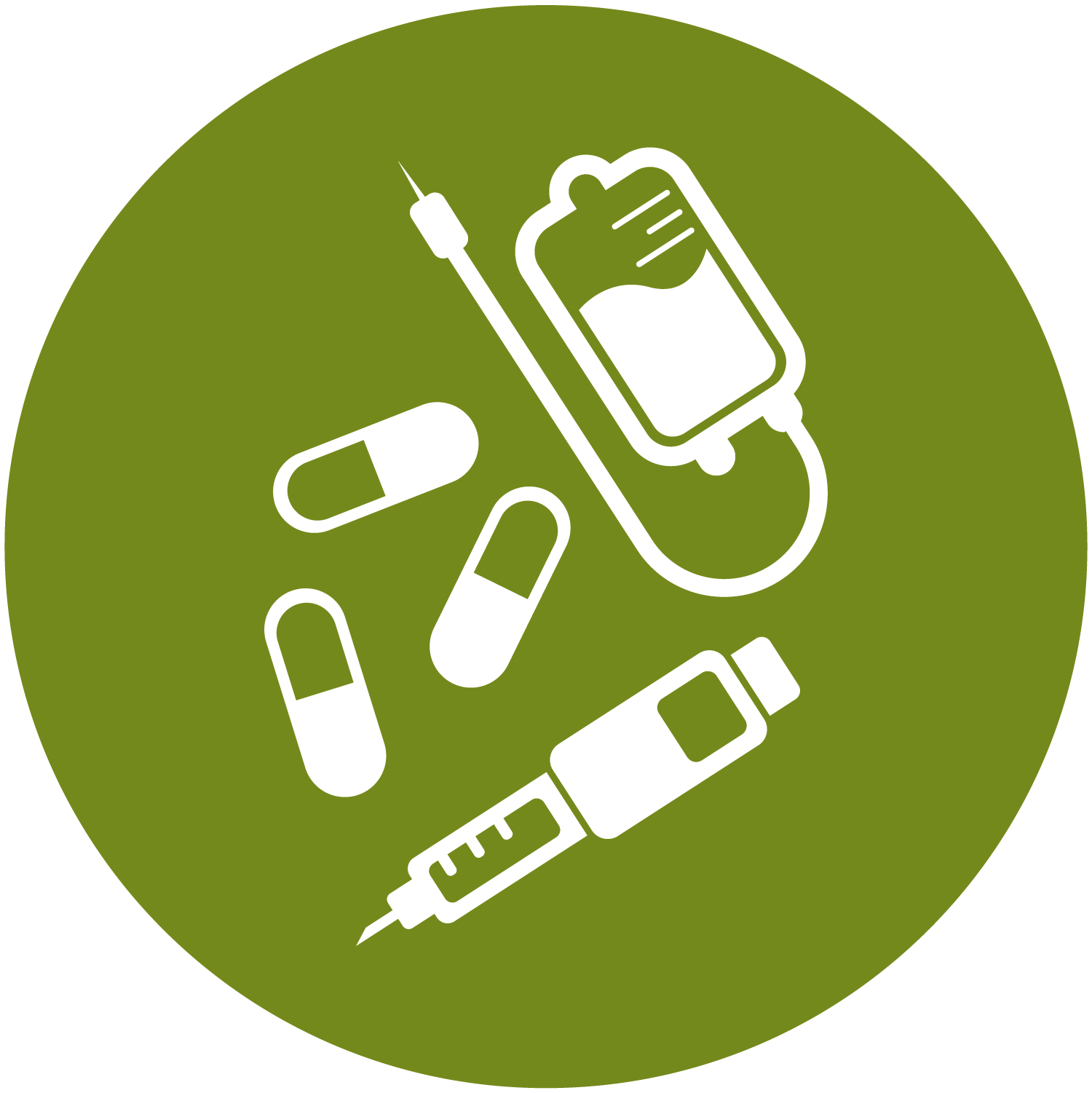Lesson 1 of JointHealthTM Education – Advanced Therapies for Inflammatory Arthritis (IA) begins with fact-based information on how to identify when your disease is worsening, how that will be measured, how to discuss the changes with your rheumatologist or health care provider and knowing what advanced therapies are available and how to choose among them.
Please read each section of this lesson carefully, and then when you are ready, take the Quiz to test your new knowledge. The quiz is an interactive and printable PDF.

Deciding when it is time to transition to advanced therapies
- The goal of treatment is to improve your joint pain and swelling and to improve your ability to perform day-to-day activities and overall quality of life.
- Rheumatologists strive to be able to predict who will be a good responder to csDMARDs therapy or who will need a more aggressive or targeted treatment regimen with advanced therapies. The aim is to enable all inflammatory arthritis patients to reach optimal health quickly.
- Each person living with inflammatory arthritis is different. No single treatment for inflammatory arthritis works for all patients.
- Many people with inflammatory arthritis must change their treatments several times during their disease journey which lasts a lifetime given there are presently no cures.

Key reasons for transitioning to advanced therapies include:
- Treatment with csDMARD therapy isn't working well enough. This is the most common reason for taking advanced therapies. If csDMARD therapy isn't helping enough, your rheumatologist might add an advanced therapy.
- You have side effects from methotrexate. Some people don't tolerate methotrexate well. Some health conditions – like liver problems – rule out the use of methotrexate. In these cases, your rheumatologist might move directly to an advanced therapy.
- You are pregnant or want to become pregnant. Women with inflammatory arthritis should talk to their doctors if they're considering pregnancy. Evidence suggests that some – not all – advanced therapies might be safer for pregnant women than methotrexate. However, advanced therapies can pose risks as well.

Recognizing the signs and symptoms of increased disease activity
- Recognizing when the ideal time to transition from csDMARDs (conventional synthetic disease modifying anti-rheumatic drugs, such as methotrexate, hydroxychloroquine or sulphasalazine) to an advanced therapy (such as a biologic or targeted small molecule) is important to maintaining good control over the most common types of inflammatory arthritis.
- Worsening of joint swelling, pain levels, fatigue, days off work and losing the ability to continue doing daily and leisure activities are clear signs that inflammatory arthritis is more active. If that trend continues over weeks and months, it may become more difficult to get the disease back under control even when moving to an advanced therapy.
- A health journal regularly tracking (weekly or monthly) how you feel, number of swollen or painful joints, fatigue levels, days off work, loss of ability to do daily or leisure activities, among other things, is an excellent reference guide for starting and having a conversation with your rheumatologist about the need to move to advanced therapy.
- The conversation starting point with your rheumatologist or nurse is whether you are experiencing a short-term (a few days or weeks) flare or if in fact your disease is worsening and whether that worsening will continue if a therapy change isn’t made.
- While there is no classic definition of “disease worsening”, in general, if you are faithfully taking your medications and following the other aspects of the treatment plan you have developed with your health care team and your joint swelling and stiffness gets worse over the course of several weeks, your fatigue and ability to sleep worsens, you stop being able to do the things you were doing in your life and things persist, it is a sign that your disease is active and worsening and taking action is needed.

How your rheumatologist or other health care provider determines if you have uncontrolled inflammatory arthritis
- Having an open conversation with your rheumatologist about your disease worsening is critical to determining if an addition or change to your medication treatment plan is needed, whether you have early onset or well established inflammatory arthritis.
- Along with a thorough physical exam – one where you are dressed in a gown so that your rheumatologist can easily and fully see the main joints in your body (shoulders, back, knees, ankles and hips) – they will ask you to fill out one or several “questionnaires” which statistically “measure” your disease activity and give it a “score”. These measurement tools can include:
- The “HAQ” (Health Assessment Questionnaire): A patient’s self-assessment of how easily, or not, they can do daily activities. Used for most inflammatory arthritis diseases.
- The “CDAI” (Clinical Disease Activity Index): A tool used by health care providers to gather information from patients on their rheumatoid arthritis disease activity, such as how well the person thinks they're doing, along with examination findings, like swollen and tender joint counts.
- The “VAS” (Visual Analogue Scale): A tool used for patients to indicate how much pain they are in by marking on a scale of one to 10. Used in all types of inflammatory arthritis and other pain related diseases and conditions.
- Specific to ankylosing spondylitis (AS), the “BASDAI” (Bath Ankylosing Spondylitis Disease Activity Index), “BASFI” (Bath Ankylosing Spondylitis Functional Index) and “BASMI (Bath Ankylosing Spondylitis Metrology Index) are commonly administered. These and other tools measure AS disease activity, disability, physical function, spinal mobility, etc.
- In psoriatic arthritis (PsA), the following tools help measure disease activity, physical function, emotional well-being, body surface area affected, among other things: “BSA” (Body Surface Area), “PASI” (Psoriasis Area and Severity Index), “PGA” (Physician’s Global Assessment), “SAPASI” (Self-Administered PASI)
- Laboratory tests can also be used to track increased disease activity, such as:
- Erythrocyte sedimentation rate (ESR) or “sed rate”
- C-reactive protein or CRP
- Rheumatoid factor or RF
- Anti-cyclic citrullinated peptide antibodies or “anti-CCP”
These tests measure inflammatory proteins in the blood that show to what extent inflammatory arthritis is being affected by treatment. These are often called inflammatory “markers”.
- Two other tests, called “Vectra DA” and “Jointstat”, are also available but depending on where you live you may have to pay out-of-pocket for them. Vectra DA measures 12 different blood markers in one test, and Jointstat measures a specific blood protein 14-3-3η (eta) involved in the biochemical pathways that lead to inflammation and joint damage.

Initiating the advanced therapy conversation
- Based on your description of how you are feeling (commonly referred to as “patient reported outcomes”) and based on physical exam and measurement tools results, your rheumatologist may recommend one or several “advanced therapy” strategies to gain the upper hand on your disease. Here are key points to consider and remember:
- “Best practice” means aggressively initiating and transitioning of medications every two or three months until the therapy combination brings the inflammatory arthritis under maximal control.
- Historically, rheumatologists took a more cautious approach to improve symptoms in their patients, which led to smaller improvements of overall health over a longer time, measured by percentages (20% or 50%, for example). Today, they work closely with their patients and set a decisive treatment goal – to achieve 100% improvement, otherwise known as “remission” or “low disease activity”.
- Rheumatologists call this strategy “treat to target”, getting “a hold of” the inflammatory arthritis aggressively early on to prevent disease progression and the need for surgery critical.
- Ideally, the rheumatologist and their patient assess all treatment options available, including advanced therapies such as biologics and targeted small molecule medications, and together considers which treatment, alone or in combination, is best.
- At the time of transition to advanced therapies, setting improvement goals, measuring progress towards them, and then adjusting or continuing with the treatment until complete remission is achieved delivers the best outcomes possible.

Key questions to ask your rheumatologist when your disease worsens
- What is triggering my flares?
The remission-flare pattern of inflammatory arthritis is a challenge for people. Speak to your rheumatologist, ask how you can work together to figure out why you get flares and what to avoid or can be a trigger for an oncoming flare.
- What do the new side effects mean?
You should tell your rheumatologist if you are experiencing any new side effects such as headache, rash, mouth sores, liver or lung problems, among others.
- Have my meds stopped working?
Talk to your rheumatologist throughout your disease journey to understand how to tell when a medication is no longer working.
- What new treatments are available?
Inflammatory arthritis treatment research continues to advance rapidly. In addition to older csDMARDs (e.g. methotrexate), newer advanced therapies, such as biologics and targeted small molecule medications are available to treat inflammatory arthritis. Over the past 18 years in Canada, biologics have become a life-saving treatment option for inflammatory arthritis patients whose disease does not respond, or respond well enough, to conventional synthetic disease-modifying anti-rheumatic drugs (csDMARDs). Biologics and targeted small molecule medications are proved to effectively address disease signs and symptoms – like swelling, pain and fatigue – but also improve mortality and reduce heart disease and other complications of inflammatory arthritis.
- Should I stop exercising?
Any medication will work better if you combine it with healthy lifestyle behaviours. Exercise, losing weight if needed, keeping your cholesterol and blood pressure under control and if you smoke, stopping smoking, will all improve your health and should be part of your inflammatory arthritis treatment plan. Before you start an exercise routine, ask your rheumatologist if it is safe and the right one for you.
- Should I be concerned about how my inflammatory arthritis meds are interacting with other medicines I’m taking?
If you are taking other medicines besides csDMARDs and wondering how they might interact with csDMARDs or advanced therapies, you need to ask your rheumatologist.
- Can I try to get pregnant?
Yes, as long as your medication routine is not harmful to the fetus.
Women who are considering pregnancy or find out they are pregnant should discuss their medication routine with both their rheumatologist and their obstetrician promptly. Some medications used to treat inflammatory arthritis, such as methotrexate and leflunomide, can harm the fetus.
Watch the coaching video

Arthritis Consumer Experts
© 2000-2022 ACE Planning and Consulting Inc.

ACE thanks Arthritis Research Canada (ARC) for its scientific review of ACE and JointHealthTM information and programs.

Arthritis Consumer Experts
© 2000-2022 ACE Planning and Consulting Inc.

ACE thanks Arthritis Research Canada (ARC) for its scientific review of ACE and JointHealthTM information and programs.



